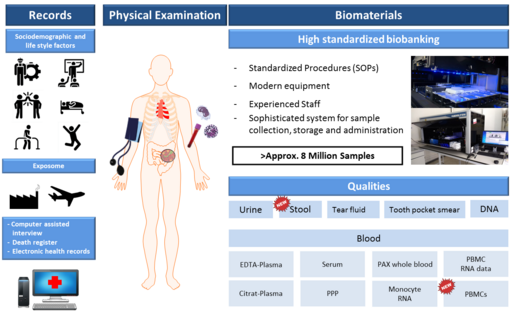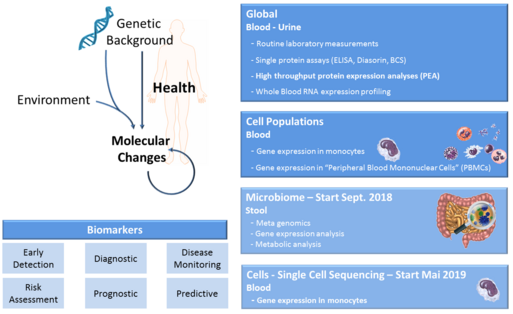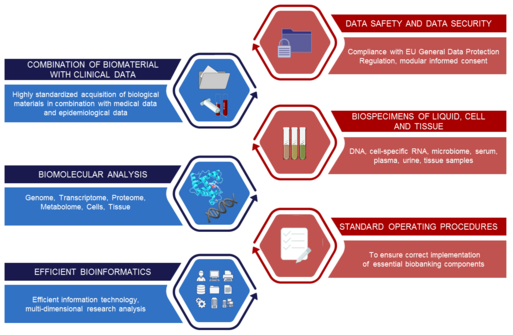
Studies with Bio Database
In its research work, Preventive Cardiology aims to translate scientific findings into clinical application. In science, this cardiovascular clinical epidemiological research is often a link between basic research and medical application. High-quality patient-oriented research can improve prevention, diagnosis, treatment, therapy as well as prognosis of cardiovascular diseases.
The central resource of our scientific work are the existing, well-characterized, mostly also interdisciplinary cohorts including biomaterial banks. These are based on a comprehensive characterization and assessment of the study participants and their health or disease course (in addition to the subclinical and clinical disease, many factors such as personality, environment and lifestyle play a role here) combined with the collection of different biomaterials (molecular markers, including genetics). This way, complex, multi-causal mechanisms and processes in the development and progression of diseases will also be deciphered and understood in both confirmatory and exploratory approaches.
The basis for the generation and utilization of these resources are highly standardized processes and comprehensive quality management in all of our projects. Standardized methods are used for sample processing and a semi-automated and temperature-monitored biomaterial storage facility is used for storage. A biomarker laboratory and a genetics laboratory are available for analyses of large sample quantities. The bio database of Preventive Cardiology currently comprises an inventory of approximately 5.3 million bio specimens of various biomaterials. On the following pages you can find more detailed information on the larger projects.
Preventive Cardiology and Medical Prevention manages and operates the biobank of liquid biomaterials and cells for the Mainz University Medical Center. The biobank is a central element of translational science at Mainz University Medical Center, as it is an interface in the interdisciplinary collaboration between the various clinics and institutes.
Back to Scientific Expertise



